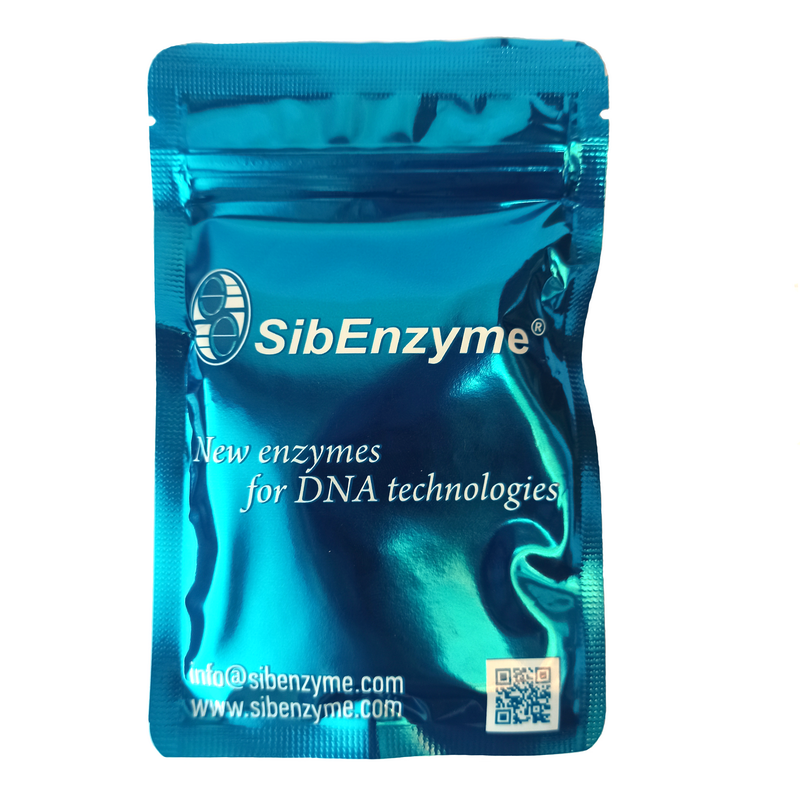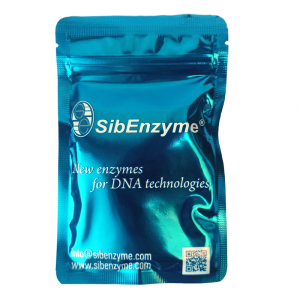Description
Thermolabile Alkaline Phosphatase (TAP) catalyzes the dephosphorylation of 5′ and 3′ ends of DNA and RNA. Also, TAP hydrolyzes ribo- and deoxyribonucleoside triphosphates.
Applications:
-removing 5` and 3` phosphoryl groups from nucleic acids;
-preparing templates for 5` end labeling;
-preventing DNA fragments from self-ligating.
Source: Isolated from E.coli strain that carries the cloned Alkaline Phosphatase gene from Alteromonas undina P2
Unit definition: Thermolabile Alkaline Phosphatase (TAP) catalyzes the dephosphorylation of 5′ and 3′ ends of DNA and RNA. Also, TAP hydrolyzes ribo- and deoxyribonucleoside triphosphates.
Applications:
-removing 5` and 3` phosphoryl groups from nucleic acids;
-preparing templates for 5` end labeling;
-preventing DNA fragments from self-ligating.
Reaction buffer: SE-buffer W
Storage conditions: 20 mM Tris-HCl (pH 7.6), 0.1 mM ZnCl2, 50% glycerol. Store at -20°C
Quality control: The enzyme is purified free of contaminating endonucleases andexonucleases, ribonuclease activities.
Notes: Functional assay: As a result of treatment 1μg of pUC19/Hind III DNA containing 1X SE-buffer W and 1μl of the enzyme in a total reaction volume of 20 μl in 30 min at 16°C , with following ligation with T4 DNA Ligase and transformation of E.coli cells, >10-times decreasing of clones amount was achieved compared to use of untreated pUC19/Hind III DNA.
Protocol for dephosphorilation of 5′-ends of DNA digested with Restrction Endonuclease (RE) using TAP:
20 μl of the reaction volume:
10X SE-buffer for RE or Buffer W -2 μl
DNA – 0,5-1 μg
Nuclease-free water -to 20 μl
Add 1 μl of RE, mix by pipetting.
Incubate for 0,5-1 hour at optimal temperature.
Chill the reaction mixture on ice for 1-2 min!!!Add 1 μl (5 units) of TAP (E365/E366), mix by pipetting.Incubate for 0,5-1 hour at 16°C (Incubation at 25°C results in 75-100% activity).Heat the reaction mixture for 20 min at 65°C.If necessary, make precipitation of DNA with ethanol or purify it by gel-filtration or spin-column.



